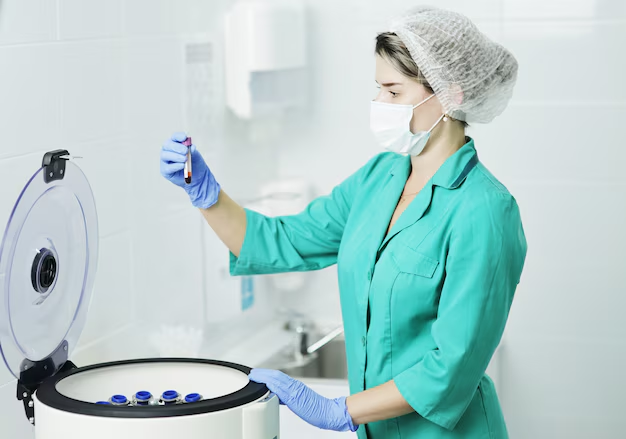Sterile Processing Technician Career Guide | Education, Salary, and Career Outlook
The healthcare system is a vast and intricate organism, with each component playing a pivotal role in maintaining the health and well-being of patients. One such crucial, yet often overlooked, component is the work of Sterile Processing Technicians. These dedicated professionals ensure the safety and efficacy of medical tools and instruments, making them indispensable to any healthcare setting. This article will delve into the role of a Sterile Processing Technician, highlighting its significance, history, and why it presents an appealing career choice for aspiring healthcare professionals.
Education and Training
High School Preparation
A career as a Sterile Processing Technician begins even before obtaining a dedicated certification. High school students interested in this field should focus on courses such as biology, chemistry, and health sciences. A strong foundation in these subjects will not only provide a deeper understanding of the human body and sterile environments but also prepare students for the rigorous training and certification processes ahead.
Required Degrees or Certifications
While a college degree is not mandatory to become a Sterile Processing Technician, obtaining a post-secondary certification greatly enhances your credentials. Many community colleges and technical schools offer Certified Registered Central Service Technician (CRCST) programs accredited by recognized bodies like the International Association of Healthcare Central Service Materiel Management (IAHCSMM) or the Certification Board for Sterile Processing and Distribution (CBSPD).
Specialized Training Programs
Specialized training programs usually cover key areas like microbiology, infection control, quality control, and sterilization processes. These programs are designed to equip future technicians with the skills needed to handle and disinfect surgical instruments thoroughly. Hands-on training is a critical component, often featuring supervised clinical practice in hospitals or surgical centers.
Licensing and Board Exams
Upon completing a training program, aspiring Sterile Processing Technicians must pass a certification exam from either the CBSPD or IAHCSMM. Continuing education and periodic recertification are essential to maintain these credentials and keep pace with evolving industry standards.
Continuing Education
Continuing education ensures that Sterile Processing Technicians stay updated on the latest technologies and best practices in infection control and sterilization. Accredited organizations frequently offer workshops, webinars, and online courses to help technicians refine their skills and knowledge.
Educational Pathway Summary
| Step | Description |
|---|---|
| High School | Focus on biology, chemistry, health sciences |
| Certification Programs | Attend accredited programs like CRCST by IAHCSMM or CBSPD |
| Hands-on Training | Complete clinical practice in healthcare settings |
| Certification Exams | Pass exams from CBSPD or IAHCSMM |
| Continuing Education | Participate in ongoing workshops and courses for skill enhancement |
Skills and Qualities Needed
The role of a Sterile Processing Technician requires a mix of both hard and soft skills that ensure the seamless execution of duties.
Hard Skills
- Attention to Detail: Precision in sterilizing instruments to prevent infections.
- Technical Knowledge: Understanding sterilization equipment and procedures.
- Safety Protocol Adherence: Implementing strict guidelines for infection control.
Soft Skills
- Communication: Collaborating effectively with healthcare teams.
- Problem-Solving: Addressing equipment malfunctions or mishandled instruments promptly.
- Organization: Managing inventory and ensuring the timely availability of sterile supplies.
In a real-world setting, these skills translate into the timely sterilization and distribution of instruments essential for patient care, ensuring surgeries and medical procedures are conducted safely and efficiently.
Salary
The salary of a Sterile Processing Technician can vary depending on factors such as experience, geographic location, and specialization.
U.S. National Averages
As of recent data, the average annual salary for a Sterile Processing Technician in the United States is approximately $40,000. However, salaries can fluctuate based on career stage and location.
| Career Stage | Salary Range |
|---|---|
| Entry-Level | $30,000 - $35,000 |
| Mid-Level | $35,000 - $45,000 |
| Experienced | $45,000 - $60,000 |
Factors influencing salary include:
- Location: Urban areas or regions with a high cost of living often offer higher salaries.
- Education Level: Additional certifications or specialized training can enhance earning potential.
- Specialization: Working in specialized departments like cardiac surgery may offer additional pay.
Career Outlook and Job Help
Job Growth Data
According to the Bureau of Labor Statistics, the demand for medical equipment preparers, which includes Sterile Processing Technicians, is expected to grow by 6% through the coming decade. This growth is fueled by an aging population and increasing demand for surgical procedures, underscoring the vital need for skilled technicians.
Common Employment Settings
Sterile Processing Technicians find employment in a variety of settings, including:
- Hospitals
- Outpatient Surgery Centers
- Dental Offices
- Veterinary Clinics
Career Advancement Opportunities
With experience, Sterile Processing Technicians can advance to supervisory roles, overseeing a team of technicians or managing the entire sterilization department. Further education can lead to positions in infection control or quality assurance.
Tips for Job Seekers
- Resume Building: Highlight relevant certifications, hands-on training, and any specialized skills or achievements.
- Networking: Join professional organizations like IAHCSMM for networking opportunities.
- Certification Renewals: Stay updated with recertification requirements to maintain your credentials.
Final Insights
Pursuing a career as a Sterile Processing Technician is both rewarding and impactful. These professionals play an integral role in the healthcare system, ensuring safety and efficiency in medical procedures. For students considering this path, the opportunity to make a tangible difference in patient care while working within a growing and dynamic field presents an appealing and fulfilling career choice. With ample opportunities for advancement and specialization, this role offers both stability and personal growth for those committed to excellence in their craft.

